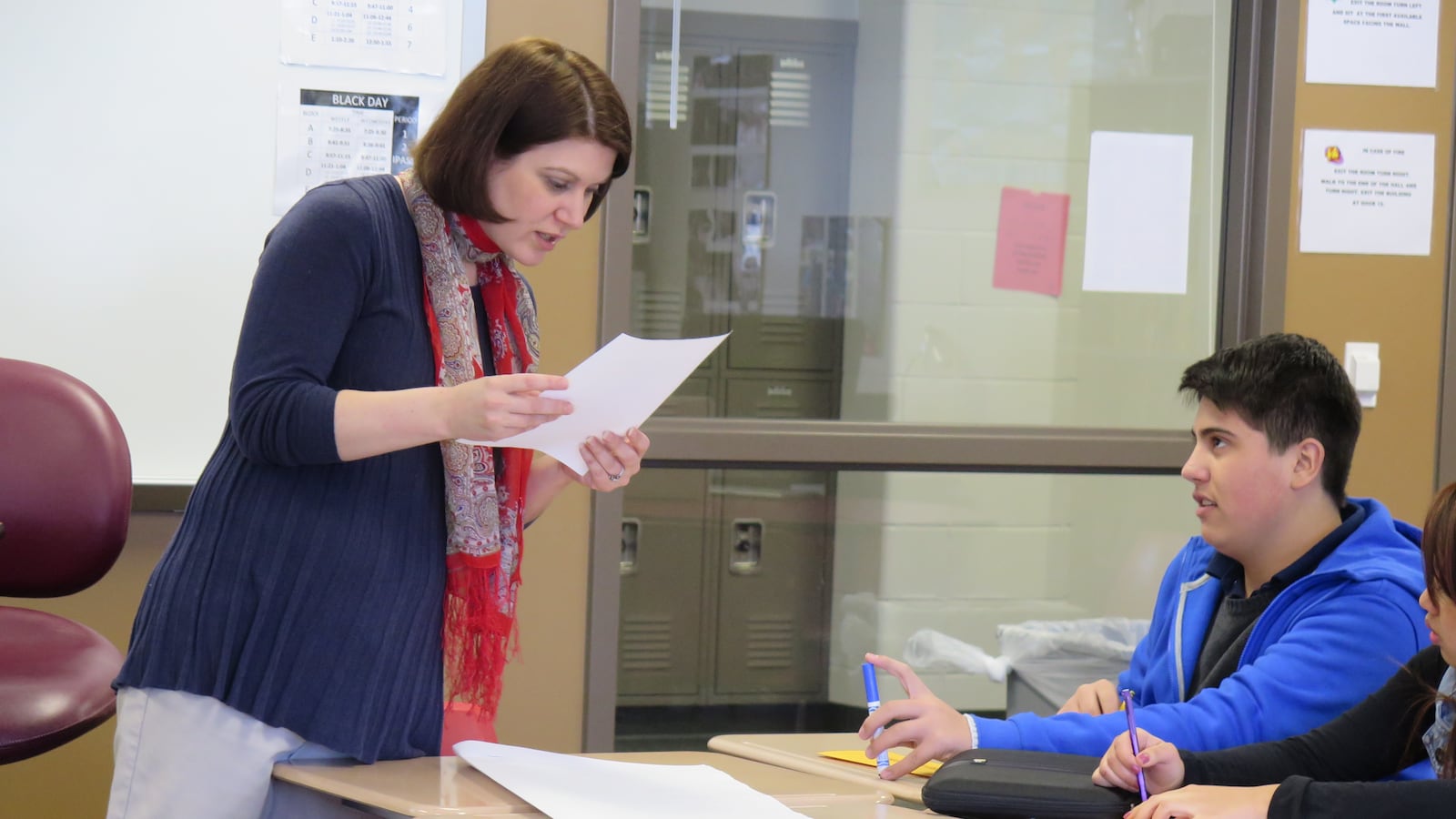Kelly Wilber had been teaching in Perry Township for about seven years when the school district rolled out a new approach to teacher evaluation, mentorship, and coaching — and she felt the change almost immediately.
“I felt like I was a good teacher before,” Wilber recalled. “I mean, I studied all the things in the books, and we had professional development.”
But when the district started using the new approach, the TAP System, “we found the answer of what we needed to do to help our students grow,” said Wilber, who teaches fifth grade at Southport Elementary School.
The TAP System was developed as a strategy for improving instruction, and it is popular in Indiana, where state policymakers have encouraged schools to adopt the system. Perry Township has used it for seven years, and the district has become something of a poster child for the National Institute for Excellence in Teaching, the group behind TAP. On Thursday, the nonprofit recognized Perry Township schools with the organization’s first National Award of Excellence for Educator Effectiveness, which came with a $50,000 prize.
TAP relies on mentors and teacher leaders who are paid stipends to coach their colleagues — a tactic that’s becoming popular among schools as a way to allow experienced teachers to take on more responsibility without entirely leaving the classroom. Each week, groups of teachers meet with master teachers who work with them on strategies they can use in the classroom, like how to tackle word problems or use manipulatives in math.
The model also has guidance on common problems teachers encounter. In the first year of TAP, for example, Wilber had a student who said he wasn’t interested in school or homework and told her, “I’m only here because my brother came here, and I like to do what my brother does,” she recalled.
Wilber began trying techniques that TAP recommended, like using his name during model lessons and having him read the learning objectives. Soon, he was raising his hand in class.
“I felt like I knew what I needed to do because we had so much training and support,” Wilber said.
Perry Township has an unusual set of challenges. Nearly three-quarters of students are poor enough to get subsidized meals. About 25 percent of students are English language learners, and many of them are refugees fleeing religious persecution in Burma.
There is not much outside research on whether TAP improves student test scores. A 2012 study of the results in Chicago found that the program did not raise test scores, but it increased teacher retention. TAP’s developer has disputed the validity of the study, saying the TAP program was not properly implemented in Chicago schools.
But in Perry Township, educators say the approach is helping improve student results.
“If you want to make a difference with kids who are in poverty as well as have a lot of cultural differences, this format and this foundation is the best thing that you can utilize,” Superintendent Patrick Mapes said.
Joe Horvath, a master teacher at Southport High School, said his role is the same as coaches in other districts. Instead of having his own classroom, he is in charge of training 28 other teachers. One day a week, he meets with those teachers in groups. The rest of the week, he observes teachers in their classes, gives feedback, and models lessons.
“We are all on the same level,” Horvath said. “It’s not like I am their boss in any way shape or form. This is just something that allows us to continue to give a peer-to-peer feedback thing that I think is kind of missing sometimes.”

